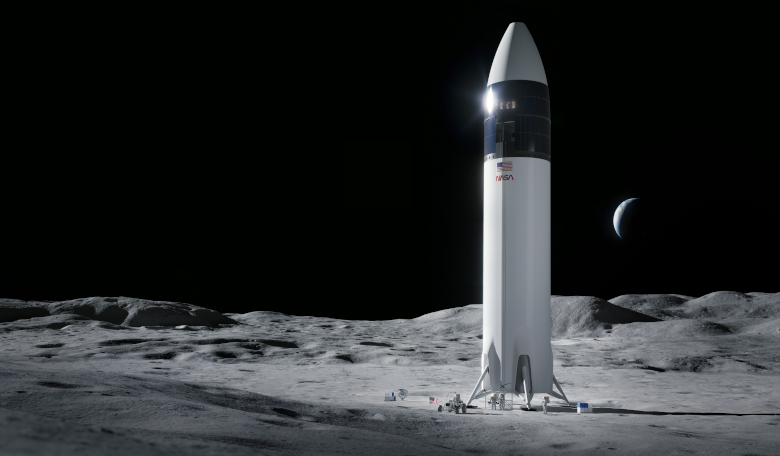NASA did not violate regulations when it awarded SpaceX the sole contract to build a Moon lander, the US Government Accountability Office said Friday, following their investigation into the contract process after protests were lodged by rivals Blue Origin and Dynetics back in May.
“GAO first concluded that NASA did not violate procurement law or regulation when it decided to make only one award. NASA’s announcement provided that the number of awards the agency would make was subject to the amount of funding available for the program,” the GAO said in a press release.
Last year, NASA awarded almost $1 billion in contracts to three private US space companies – SpaceX, Dynetics and Blue Origin – to design and develop human landing systems (HLS) as the country prepares to return humans to the lunar surface.
After the 10-month base contract period, a sole contract worth $2.9 billion was won by Elon Musk's company in April 2021.
Reports suggested that the award, given to the lowest bidder, was the result of the agency receiving only 25 percent of the funding requested for FY2021; $850 million instead of $3.4 billion.
The decision was protested 10 days later by Dynetics and Blue Origin (with its National Team members Lockheed Martin, Northrop Grumman and Draper) who argued NASA was required to make multiple awards and that the evaluation process was unfair.
“The Dynetics design was not altered, only refined — what must have changed were NASA’s technical and programmatic evaluation criteria,” Dynetics said in its protest at the time.
The GAO does acknowledge, that in reaching its award decision, NASA concluded that it “only had sufficient funding for one contract award,” however the GAO further states there was no requirement for NASA “to engage in discussions, amend, or cancel the announcement as a result of the amount of funding available for the programme.”
As a result, GAO denied the protest arguments that NASA acted improperly in making a single award to SpaceX, the Accountability office said in its statement.
Blue Origin responded on Friday by saying that it believed the GAO wasn't able to address "fundamental issues" with the original decision because of its limited jurisdiction.
Recently, Blue Origin founder Jeff Bezos, wrote an open letter to NASA offered to waive up to $2 billion in payments for FY2021-2023 to “restore competition to the Human Landing System programme by closing NASA’s near-term budgetary shortfall.”
"The Human Landing System program needs to have competition now instead of later – that's the best solution for NASA and the best solution for our country,” said a company spokesperson.
"We'll continue to advocate for two immediate providers as we believe it is the right solution.”
Dynetics echoed the same sentiment I their own statement published shortly after the announcement saying that they also “believe healthy competition is necessary to maintain the industrial base required to achieve the important strategic goals of space exploration and national security.”
But, say the firm “while disappointed” with the GAO's determination announced Friday, it respects the announcement and that they “look forward to working with NASA on the future HLS opportunities.”
SpaceX boss, Elon Musk, was less verbal about the matter, choosing to respond to GAO’s decision with a simple tweet of the words “GAO” followed by an emoji of a flexed arm muscle.
With the protest decision now made, NASA said it wants to move ahead with its award to SpaceX so that an update on the way ahead for Artemis can be made “as soon as possible”.
“The decision enables NASA to award the contract that will ultimately result in the first crewed demonstration landing on the surface of the moon under NASA’s Artemis plan,” the agency said Friday.
“Importantly, the GAO’s decision will allow NASA and SpaceX to establish a timeline for the first crewed landing on the moon in more than 50 years,” NASA added.











